Imagine you invented something that really works, everyone who has bought loves it, and nobody knows about it!
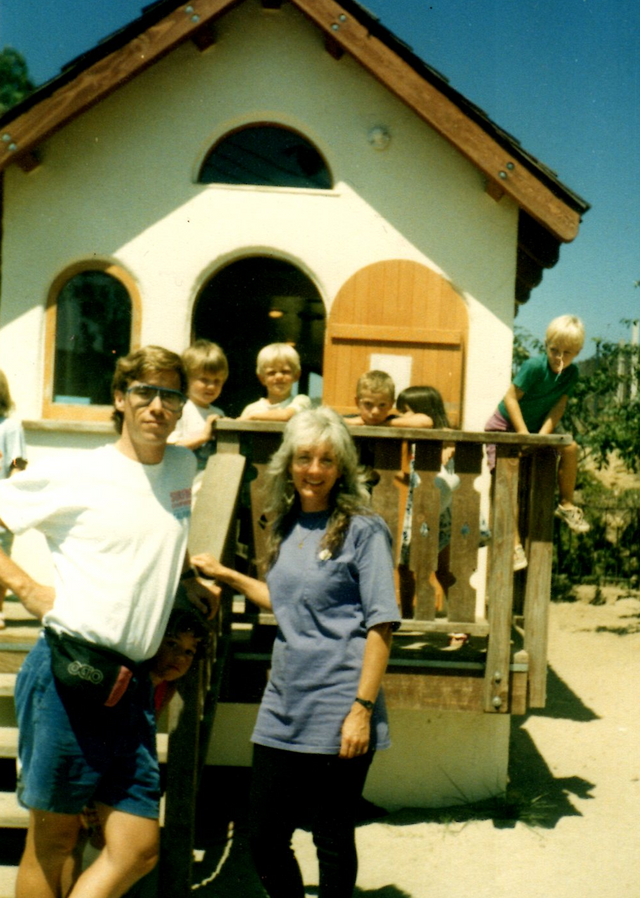
Click Here to go to The Teacher's Alphabet Website
I have been a tutor and teacher for most of my life. I have always enjoyed school and asking questions. I got the keys to teach my own class (Ayn Rand--Objectivism) in high school and managed to graduate early. At 19, I was fortunate to have someone finally ask me the kind of questions that stopped me dead in my tracks. These questions spoke to my soul (Platonic Dialogue) and I became a lover of Philosophy under the direction of Dr. Pierre Grimes at Golden West College in Huntington Beach. To be questioned in such a way that you finally realize you don't really know what you are so confidently talking about is a very magical and intoxication experience. If you are ever so fortunate to find, and be in, discussions such as these, you really don't want to do anything else. I suppose that is why, for the next many years, I hung out with a number of my friends and attended as many of his Philosophy classes (Ancient Philosophy, Modern Philosophy) as I could, whether I was enrolled in them or not. We were also able to hang out with him before and after class as well. Usually we would have one-on-one Platonic dialogues (as the rest of us listened silently) as one of us would explore, question by question, usually by Pierre, a personal problem, a dream, or some theory or insight Pierre wanted to espouse.
In my mid-twenties, on a morning I had Pierre's ear, Pierre asked me his typical hello question: "How's your World?"
I told him, despite the fact I was successful at what I was doing (classes and work), "I feel like something is missing."
As he looked me in the eye, he gave me a sly smile and said, "Oh, that's easy you are just doing what you are good at."
Somewhat incredulous, I shot back "Well, what am I supposed to do?" I figured my education had taught me: Do what you are good at, get an education in it, and get paid for it. I was verbal, I was good at Psychology, History, and Philosophy.
He said, "You want to grow don't you?"
"Of course," I said, looking at him as if it was obvious.
"Well, you just need to find something that terrifies you. Something that pushes you intellectually."
"What's that?" I asked.
"Don't worry about it," he said "you'll figure it out; come back to me when you have it."
So I wandered about the campus at Golden West for quite awhile totally perplexed. "What am supposed to do in this Life? Musicians are too flaky and I hate working at restaurants and hotels just to make money."
After I had walked around about half of the campus, I looked up at one of buildings and saw some big bronze letters gleaming in the Sun "MATHEMATICS."
Then it struck me. "Oh, crap," I realized "I 'm totally afraid of Calculus."
If you are looking for the point of this story, here it is. I was a University Prep student at Huntington Beach High School. I took all the classes I had to. As a freshman, I took Algebra with the football couch. I was okay at it--I passed. I took Geometry with one of the worst teachers on the planet and I got through her nightmare with B's and a lot of help with a dedicated network of friends. I think we gave her a nervous breakdown or two. I took Algebra II with one of the oldest, shakiest should of already been retired teachers on the planet and did okay.
But through it all, when I didn't do well in my Math classes, I blamed myself, not my teachers. I believed the lie I wasn't good at math. Some people get it and some don't. I didn't. So if I never saw another math class after high school, I knew I would be happy. Now everything in my little educational universe was about to change forever.
So I immediately went to find Pierre to tell him what I had just realized. He was walking by himself on his way to the Philosophy Building to teach a class as I caught up with him.
When I caught his gaze I said,"Hey, Pierre, I figured it out. I know what I am scared of . . ." he looked back at me, so I continued "It's Calculus, Calculus total scares the crap out of me."
Pierre laughed knowingly, gave me a big smile, and nodded his head, "Oh yeah, that's a good one. Go enroll in it and don't quit and then we'll see what kind of problems you're going have."
So I did enroll, and after the first class I immediately ran to the Math Tutoring Lab to get a tutor.
"I need a tutor, can I get a tutor for Calculus 180?" I asked anxiously.
The head of tutoring, Carol Johnson, met me and said "How many times a week do you want a tutor?"
"The class meets Monday through Friday, I want a tutor 5 times a week." I declared.
"You can't have a tutor 5 times a week." she told me matter-of-factly.
"Okay, can I have 3? Monday, Wednesday, Friday?" I asked.
She said "Sure."
So for the next two weeks, whether I had an appointment or not, after Calculus, I went to the Math Lab to do my homework. I cut out two hours a day to do my homework to make sure my homework was done before I left the Math Lab. It was then Carol came over to me and asked, "Hey Darryl, do you think you are going to take Calculus next year?" Kind of an odd question I thought, that's pretty much two semesters away.
"Yeah, I think so." I said hesitantly.
She moved in"Think you might want to be a tutor next year?"
I said "I think so."
She said "How about next semester?"
I said "Okay."
She asked "Next Month?"
I said "Okay."
She said "How about next week?"
I said okay.
She said, "Good. You're hired. Just go downstairs to Student Employment, you'll figure it out."
So I became a Math tutor at the Golden West Math Lab. I loved it. I loved it so much, I got recommendations from my other teachers so I could tutor English, History, and Political Science. Eventually I studied why people are afraid of Math (Mathophobia) and while I got Instructional Aide Certificate in Phonics and Mathematics, I got to work with and study illiterate adults. Can you imagine being 35 years old and not being able to read?
Anyway I majored in Psychology and minored in Education at University of California at Riverside. ####
Eventually in graduate school, I earned two teaching credentials; one in Elementary Education and one in Mathematics
After I taught high school math for 3 years, I was given the opportunity to design and implement a teaching program for 18 pre kindergarteners at a private school. I was excited because I could design the whole program from the ground up. So I set up a program that would teach them the 45 sounds in English (phonics), addition, subtraction, music, reading, and writing.
When it came to teaching them to make their letters and numbers, I asked for a 10 foot rolling blackboard.
I then took a thick black permanent marker and made 3 ten foot lines with a yardstick--Top Line, Bottom Line, and a dashed-middle line --at a kid level height, so the kids could come up to board and make 1 foot high letters in the lines with chalk.
I thought teaching kids how to print would just be a a simple process of showing them each of the upper case letters in A-B-C order. That's the way most of us were taught, right?
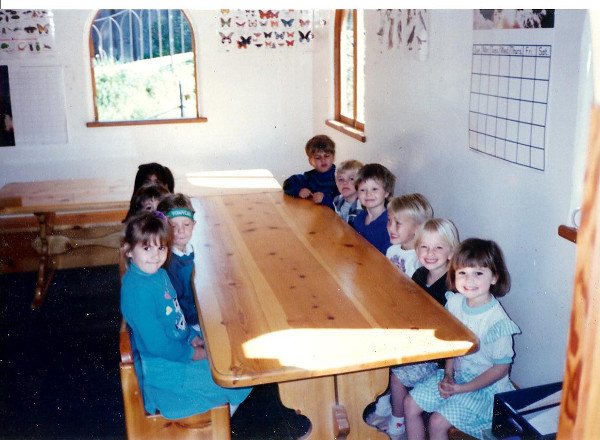
Click Here to go to The Teacher's Alphabet Website
So we spent a day on Capital A's and the kids took home rows of very nice Capital A's. Then in the middle of Capital B day, some of kids were asking me how to do Capital A's again. I thought that was very odd. These kids already knew the 45 sounds of English and could add and subtract without using their fingers. Why were they forgetting how to make Capital A's? So I showed them again and we continued with capital B's.
So on the next, Capital C day, all the wheels came off our little handwriting teaching bus.
I showed them how to make a Capital C on the board.
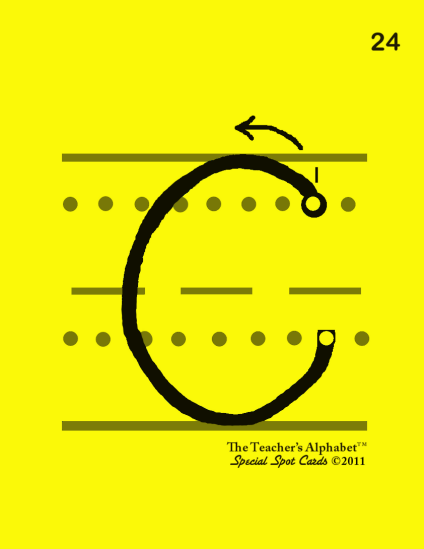
Even though my Capital C started “under” the Top Line on the board (as shown above) most of my kids proudly started their Capital C on the Top Line with the result they were imbalanced and irregular. So I told them “The Capital C starts under the Top Line.”
To which they replied “Where?” and I would repeatedly show them “the where” but they could never remember the “spot.” I even seem to remember one of them asking “Then why isn’t there a line there?” It was weird, even though I only had 18 kids, and had showed each of them several times where the Capital C started, even as they practiced the Capital C on their papers in front of me, they kept forgetting the “spot.” This was crazy. They weren’t getting it. They weren’t going to get it unless I did something else.
So I told them Capital C day was over and I was going to figure out some other way to teach them to make their printed letters by tomorrow. It was then I decided to stop teaching my kids to print in A-B-C order with three lines.
So, I started asking myself questions. What is the easiest stroke for beginning printers to practice?
Which letters are next easiest ? Are there any patterns? Are there any foundation elements that make up certain groups? Would all the letters look right if they were put into the ratios of 5 lines?
The truth is most us were never taught to write well as children, we were just taught make passable letters, told we were doing a great job, and as we got older blamed ourselves for having our sloppy handwriting . We should blamed our teachers! Up until the invention of The Teacher's Alphabet, there were no clear and obvious standards for making the printed letters well, especially the curved ones. Now there is. It is not your fault that you can’t print like an adult, you were never taught
Click Here to go to The Teacher's Alphabet Website
The Teacher’s Alphabet approach that helps kids print like adults in just a few weeks. Needless to say, it also works well for adults who want to "cure' their childish handwriting. We have had thousands of sales and hardly any reviews in over 5 years of selling it on the web. This is despite the fact we have a 30 Day Money Back Guarantee -- no one has ever asked for their money back!
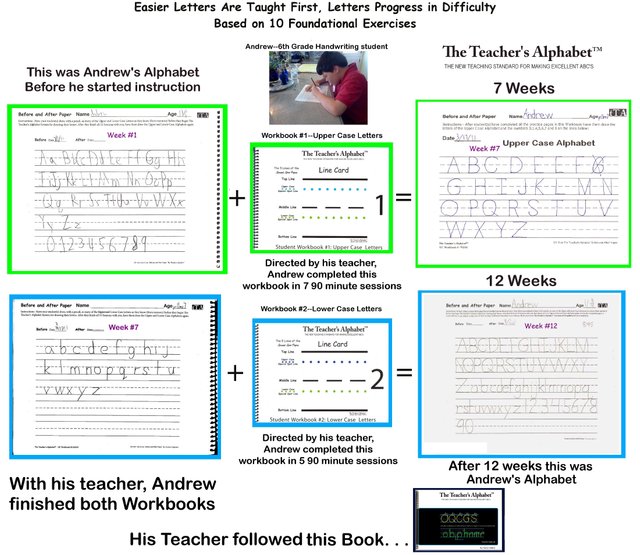
[Teacher’s Alphabet Website] (http://www.theteachersalphabet.com)
We have plenty of Proof:
Here's a 6th grader 12 sessions

Here's an adult 10 sessions in 22 days
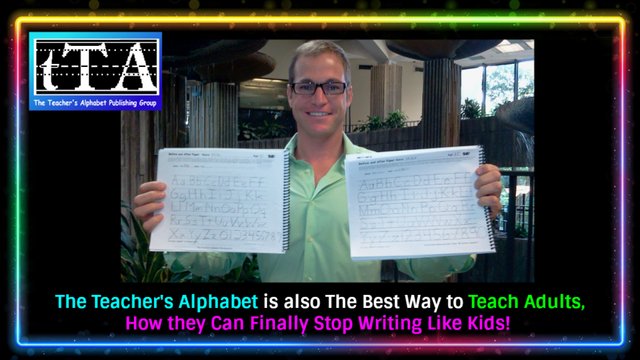
Click Here to go to The Teacher's Alphabet Website
So Steemers--what do you think? Hit us up [email protected]
Thanks,
Darryl
Too long and too good. I have only read half and I am up voting this now and will continue to read the rest.
Downvoting a post can decrease pending rewards and make it less visible. Common reasons:
Submit
Thank You leprechaum
Downvoting a post can decrease pending rewards and make it less visible. Common reasons:
Submit